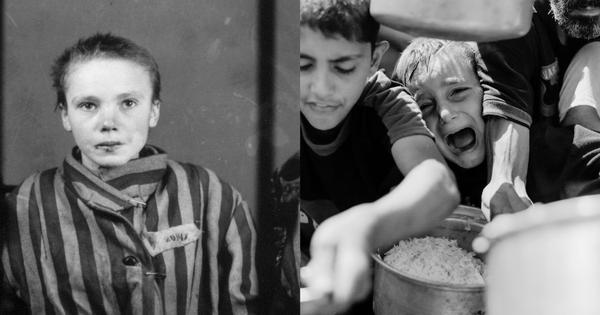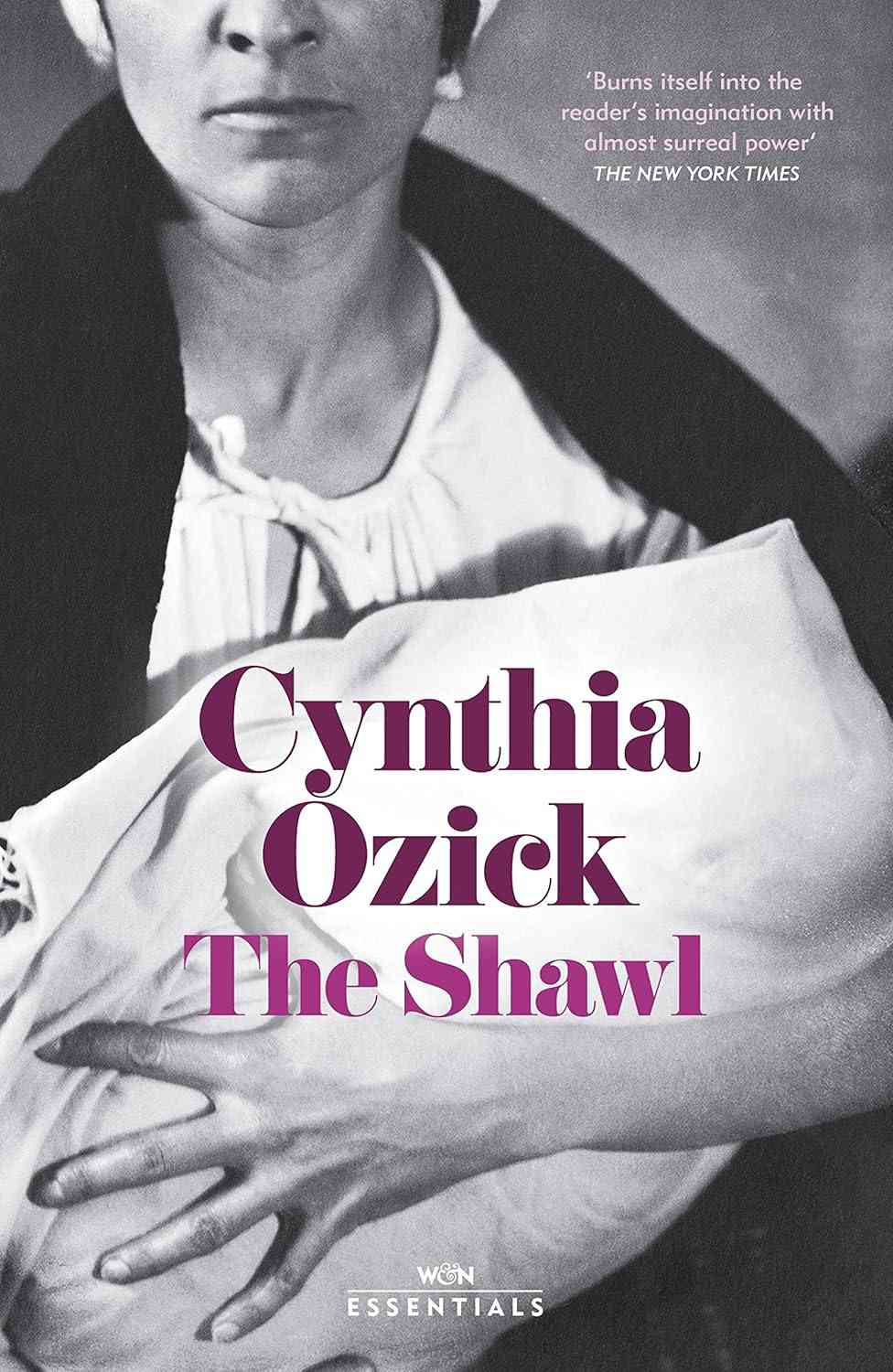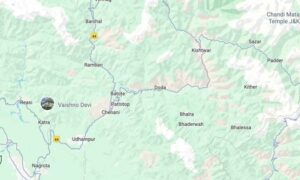
“The life before, the life during, the life after. … The life after is now. The life before is our real life, at home, where we was born.”
“And during?”
“This was Hitler.”
Cynthia Ozick’s “The Shawl” and “Rosa” were respectively published in The New Yorker in 1980 and 1983 as long stories. British publisher W&N edition published both stories as a single novella, The Shawl, in 1989. No longer than 70 pages, the novella is a triumphant vignette of Nazi oppression during the Holocaust and its undiminished legacy in the afteryears of the war.
A tragic silence
The first section comprises “The Shawl”, 97-year-old Ozick’s best-known work. Set in a concentration camp during the Nazi occupation, we are introduced to Rosa and her baby, Magda, and Rosa’s niece Stella. It can be assumed that Stella’s parents are missing and Rosa is in charge of the two children. The Nazis know only about Stella and Rosa; Magda is hidden in a white shawl and held closely to Rosa’s breasts. Starving and weightless, the baby “sucks air” from her mother’s breasts. Stella too craves similar protection and has a cannibalistic hunger for Magda. As for Rosa, she does not feel hunger; she’s perpetually “arrested in a fit”. The shawl, white and light, becomes a magical object – sustaining the baby for three days and three nights with its “good flavour” and its “milk.”
It is the post-hunger stage of the Holocaust. Defeat is thick in the air and Rosa is sure that there is no fate but death. And yet, she dreams of Magda’s survival and dreams that she’ll be adopted by a kind family. As a baby with “Aryan” features, she must be granted the life that others have been killed for. Such wishful thinking has no place in the end times, and Magda, now learning to walk, is discovered before long.
The story ends in a tragic silence; the shock of the inevitable is too hard to bear. Death, which comes prematurely for Magda, is blinding in its cruelty – so heinous that it feels like a fantastical, perverted imagination. Surely nothing human is capable of such barbarity?
In contrast, “Rosa” opens in a manic thrum of activity and description. Rosa, 59 now, is described as a “madwoman” and a “scavenger”. She’s looked after by her niece Stella, who lives in New York City. Rosa has shored up in Miami, Florida. The sunny weather makes no difference to her disposition – she’s bitter and angry, and consumed by her hatred for Stella. She detests that her niece gets to live while her own Magda is dead. There are endless fatalistic dreams about Rosa boiling Stella’s tongue and fingers, and the letters that the two exchange give no indication of their companionship during apocalyptic times.
Continued tragedies
Though far away now in space and time, Rosa’s pride has not been dented. She’s disdainful of Yiddish and loathes being lumped together with the low-class nobodies of Warsaw. When she makes acquaintances with Simon Persky, a refugee like her, in Miami, she’s quick to remind him that “your Warsaw is not my Warsaw.” She has inherited this pride from her own parents, who had declared that there was no grain of Jewish “ghetto” or “rot” in their blood. All the same, they were Jewish. Best used for filling concentration camps.
Simon attaches himself to Magda in memory of Warsaw and their escape. Rosa is reluctant to accept his company but unburdens her bitterness onto him, cursing the “thieves” who stole her life while all the time stewing in her bitterness for Stella, whom she calls the Angel of Death, and imagining Magda alive and fantasising about her daughter being alive. In the meantime, the world has moved on – the Holocaust has faded into time – and Rosa watches on in disbelief and disgust as she’s dismissed as a “survivor” and “refugee” and never as a “human being.” Already a curious subject of study, she cannot stand the distasteful curiosity of students and researchers who hound her for anecdotes and think of the Nazi occupation as perhaps nothing more than an unfortunate blip in history.
The establishment of Israel too does little to comfort Rosa’s pains. She harks back to her father’s ideals – he was a “temporary patriot” but believed he was as much a Pole as anyone else. Rosa is unmoved by the Zionist project and even views it with some suspicion. However, Palestine, the nation that would welcome the Jews, is seen as a land of barbarity and disgust. It is telling that Rosa muses about Stella being “shipped off” to Palestine to “become God knows what and live God knows how.” The dehumanisation seems almost essential to preserve Rosa’s pride and delusions of European superiority, where gracious hosts, who have done no harm, must be vilified as savages.
During Israel’s ongoing assault on Gaza, reading about the horrors of the Holocaust feels all the more surreal. How did victims of a genocide perpetuate the same less than a century later? Time becomes circular, a suffocating noose of hunger and degradation as Palestinians are put through the same atrocities that humanity had sworn would never allow to happen again. Cynthia Ozick’s The Shawl does not feel like a remembrance of a time long past, but a mirror to the present. As Rosa remembers her sprawling house and her proud parents, both wiped out by the occupation, and is perturbed to be reduced to a “survivor”, the absurdity of the entwined tragedies of the Jewish and the Palestinian fates is not lost on the reader. This realisation weighs heavily on the heart. Ozick’s slim novella bears a terrifying question: Will humanity forever be frozen in this looping curse?

The Shawl, Cynthia Ozick, W&N.
📰 Crime Today News is proudly sponsored by DRYFRUIT & CO – A Brand by eFabby Global LLC
Design & Developed by Yes Mom Hosting






